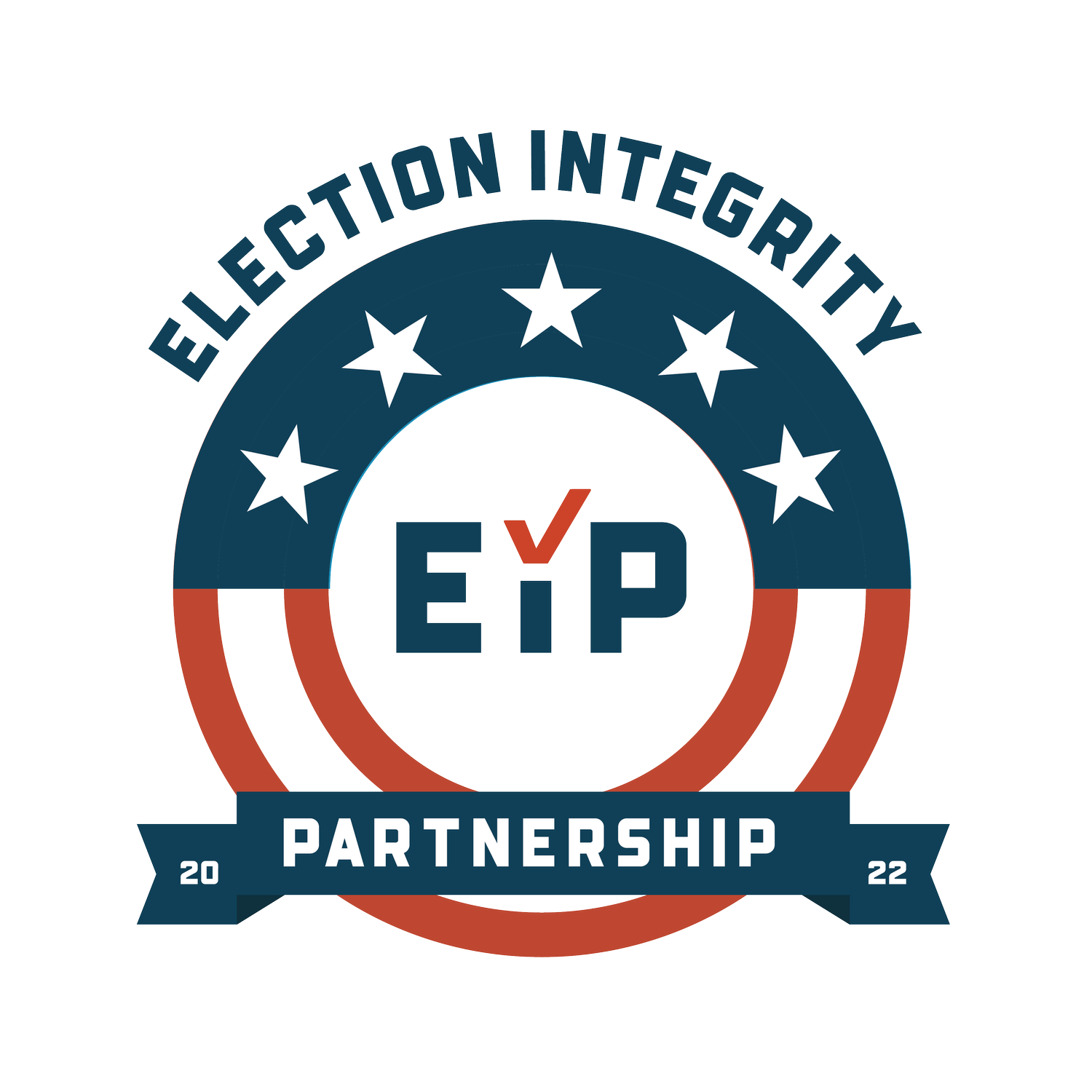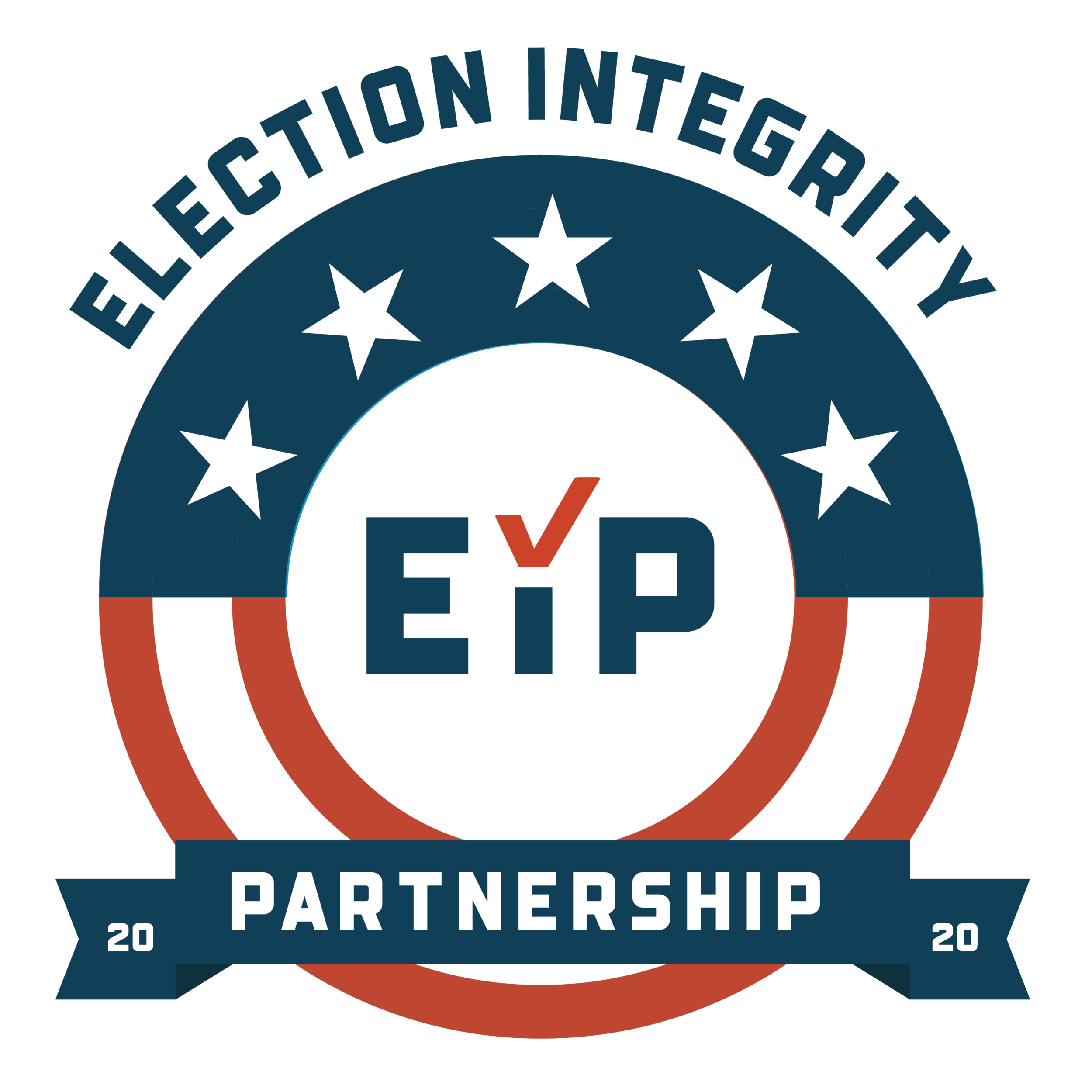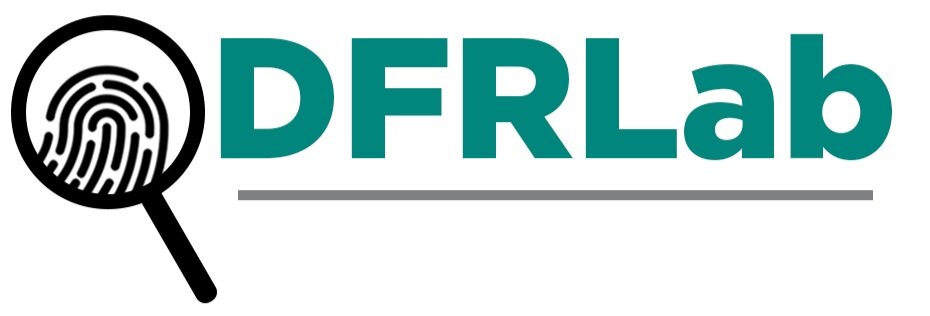The 2020 Election Integrity Partnership
The Election Integrity Partnership (EIP) was formed in July 2020 as a coalition of research entities focused on supporting real-time information exchange between the research community, election officials, government agencies, civil society organizations, and social media platforms.
Our objective was to detect and mitigate the impact of attempts to prevent or deter people from voting or to delegitimize election results. In March 2021 we published our final report. This page displays an archive of the work carried out by the EIP and its partners during the 2020 U.S. election.
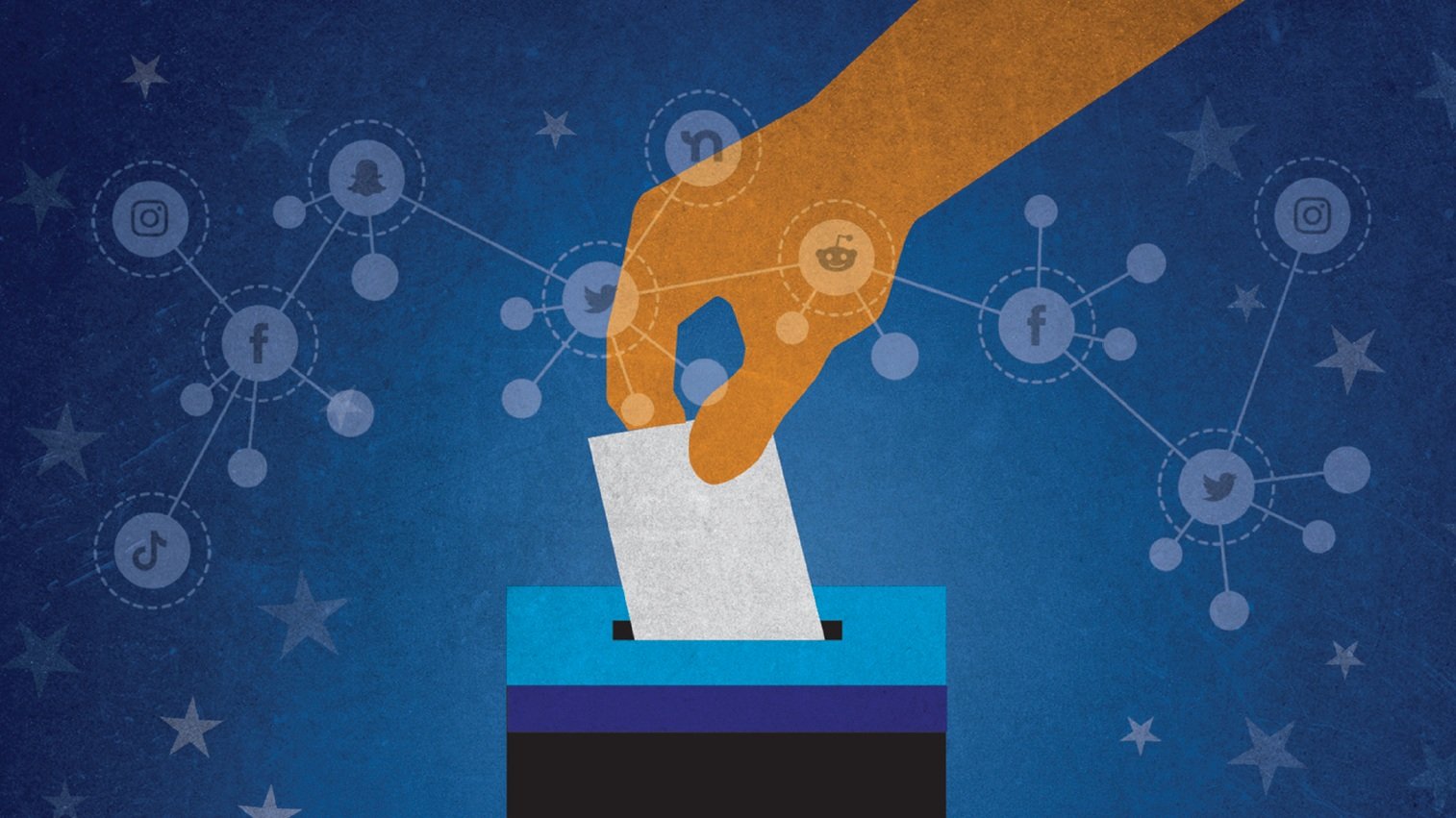
The Final Report.
The Long Fuse: Misinformation and the 2020 Election.
Blog archive.
Blog posts and publications during the 2020 election cycle.
filter by…

Evaluating Platform Election-Related Speech Policies
With under three weeks to go until November 4, EIP has updated its social media platform policy analysis post to account for substantial changes made by the platforms in the past 2 months. Since first publishing this post in August 2020, we have seen constructive policy updates from Facebook (Instagram), Twitter, Pinterest, TikTok and Nextdoor. We evaluate these new policies against our 4 categories of election integrity. We’ve also updated the post to test these policies against scenarios of potential confrontations at polling stations, which represent difficult scenarios platforms may face in real time.


Inconsistencies in State-Controlled Media Labeling
Thirty days out from the U.S. presidential election, platform policies intended to identify state-media influence operations are quickly evolving. However, there is a significant gap between platforms’ policy language and actual policy implementation. In order to evolve effectively, Facebook, Instagram, Twitter, and YouTube must fully implement terms of use policies governing how, why, and when labels are appended to foreign state-controlled media accounts, pages, and posts. Because of previous state-controlled media involvement in U.S. elections, it is critical that their capacity to create and spread disinformation is diminished to the fullest extent possible.
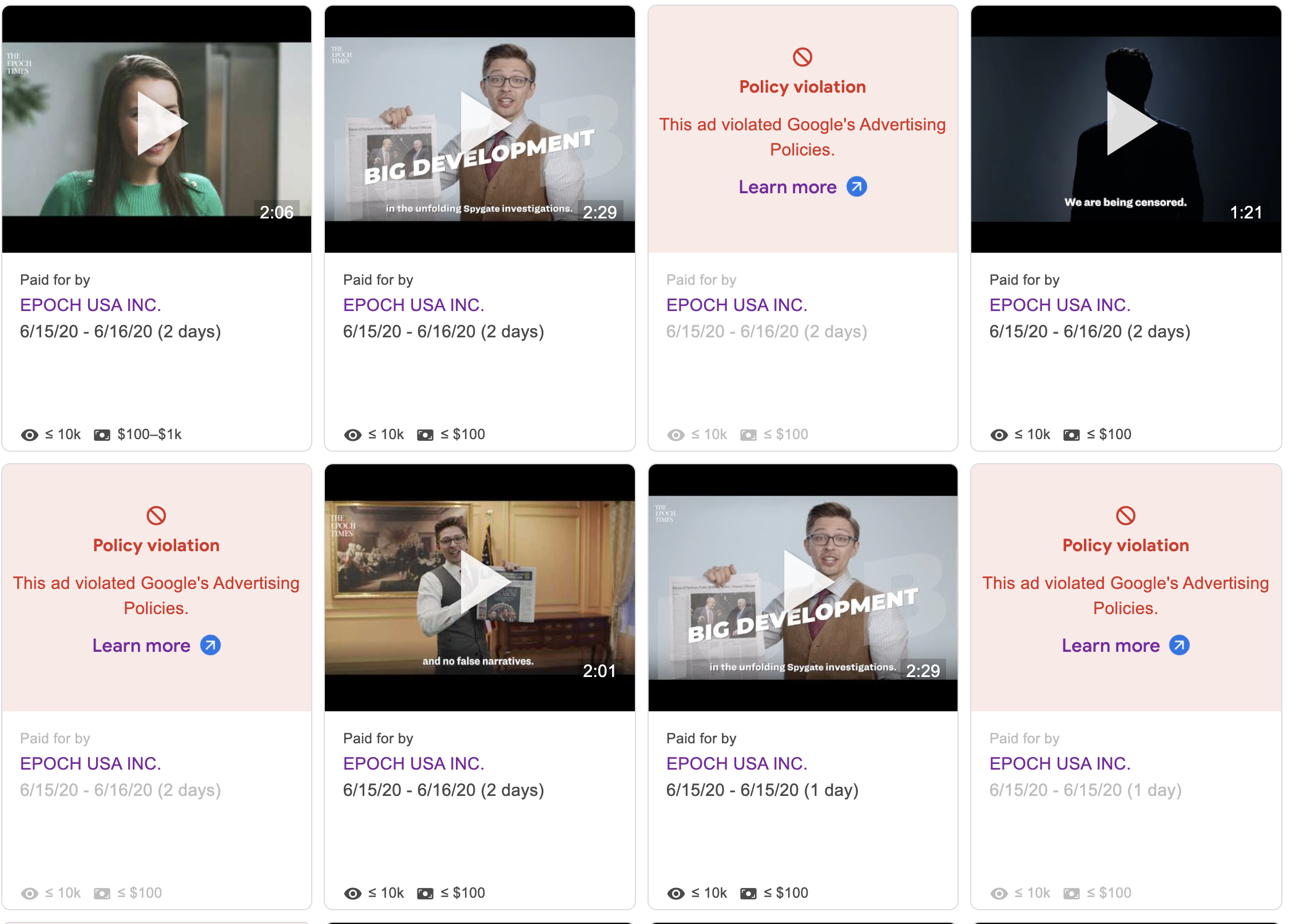
Evaluating Transparency in Platform Political Advertising Policies
This blog post builds on the foundational work of other scholars to focus specifically on three key components of digital political advertising: the review process for political ads, platforms’ transparency for information about those ads, and unique loopholes for different types of speakers running political ads. Regarding the last component, recent investigations by EIP have found loopholes in Google’s advertising policy that are cause for concern. We end with a series of recommendations to help address some gaps we highlight in our analysis.

Examining Twitter’s policy against election-related misinformation in action
On the morning of August 23, 2020, President Trump tweeted misleading information about mail-in voting and ballot drop-off boxes. The claims in the tweet violated Twitter’s relatively new Civic integrity policy, and the platform took action on his post. In this data-driven post we first examine the tweet’s propagation through Twitter and the effect of the platform’s response — in this case, adding a label and disabling the ability to retweet the content. We then discuss how the elements of Trump’s tweets violated Twitter’s policies and break the tweet down against 4 key categories of election integrity.
